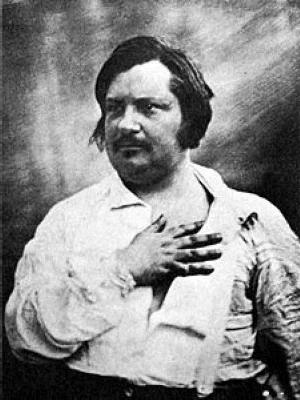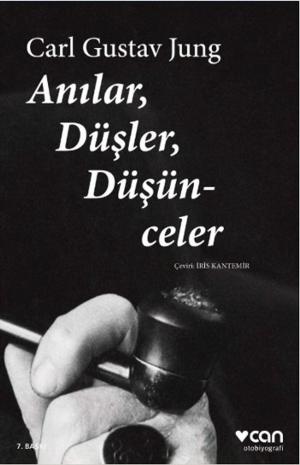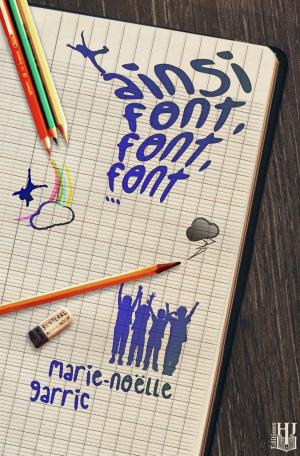The Librarian at Play
Nonfiction, Science & Nature, Science, Other Sciences, Philosophy & Social Aspects, Biography & Memoir| Author: | Edmund Lester Pearson | ISBN: | 1230000269973 |
| Publisher: | BOSTON SMALL, MAYNARD AND COMPANY | Publication: | September 23, 2014 |
| Imprint: | Language: | English |
| Author: | Edmund Lester Pearson |
| ISBN: | 1230000269973 |
| Publisher: | BOSTON SMALL, MAYNARD AND COMPANY |
| Publication: | September 23, 2014 |
| Imprint: | |
| Language: | English |
Example in this ebook
THE INTEREST GAUGE
"We are thinking of calling them 'interest gauges,'" said the agent, "but perhaps you can suggest a better name."
I took one of the little instruments and examined it. Hardly over an inch long, with its glass tube and scale, it resembled a tiny thermometer. The figures and letters were so small that I could not make them out, though they became clear enough through a reading-glass.
"Interest gauges," I remarked, "sounds like something connected with banks. I should think you could find a better name. Who invented them?"
The agent looked important.
"They were invented," he explained, "by Professor Dufunnie, the great psychologist. They are a practical application of psychology. Let me show you how they are used. Allow me—I will take this book—the 'Letters of Junius,' and attach the interest gauge. Here in the back, you see, the gauge is invisible to the reader. You will notice now, if you look through the glass, that the gauge marks zero. No one is reading the book, we have not even opened it, and the human mind is not acting upon the book. If you will take it into your hand, and look down at the gauge through the glass, you will see probably some little agitation of the liquid within the tube. You do, do you not? I thought so. That is because you are probably already familiar, to some extent, with the 'Letters of Junius' and the recollections that they arouse in your mind are exerting themselves upon the fluid. Now, if you will oblige me, open the book and read attentively for a few moments."
I did so, and then handed it back to the agent.
"Look," he cried, "as soon as you cease reading, the fluid sinks back to zero. But the little aluminum arrow remains at the highest point which the fluid reached—that is, the highest point of interest which you felt in the book. Ah, yes—40 degrees—a faint interest. You will notice that the degree-points are marked at intervals with descriptive phrases—40 is 'faint interest,' 30 is 'indifference,' 20 is 'would not keep you awake after 9 p.m.,' and so on."
The thing was very fascinating.
"It is astounding," I said, "for that is exactly my feeling towards Junius, and yet I tried to get more interested in him than usual."
The agent laughed.
"You can't fool the gauges," he said. "You can't do it, even when you know one is attached to your book. I need not say that it is absolutely correct when the reader is not aware that there is a gauge upon his book. You must see the value of these to a librarian. Let me show you how incorruptible they are. Have you something there in which you have absolutely no interest—some book or article that is dry as dust?"
I looked about.
"This pretty nearly fills the bill," I said, and I handed him a copy of a library magazine with an article by Dr. Oscar Gustafsen on "How to Make the Workingman Read the Greek Tragedies."
The agent attached an interest gauge, and told me to read Dr. Gustafsen's article, and to try as hard as I could to become interested; to pretend, if I could not feel, the greatest excitement over it. I did so, and strained every muscle in my brain, so to speak, to find something in it to interest or attract me. It was no use—the fluid gave a few convulsive wabbles, but at the end the little arrow had not even reached 10, or "Bored to Death."
Then the agent took a copy of "The Doctor's Dilemma," and putting an interest gauge on the volume, asked me to read a few pages, and to remain as indifferent as possible. I read it calmly enough, but the liquid in the tube mounted slow and sure, and when we examined the arrow it pointed to 80.
"Try it on this," said the agent, handing me Conan Doyle's "Round the Fire Stories."
To be continue in this ebook................................................................................................................
Example in this ebook
THE INTEREST GAUGE
"We are thinking of calling them 'interest gauges,'" said the agent, "but perhaps you can suggest a better name."
I took one of the little instruments and examined it. Hardly over an inch long, with its glass tube and scale, it resembled a tiny thermometer. The figures and letters were so small that I could not make them out, though they became clear enough through a reading-glass.
"Interest gauges," I remarked, "sounds like something connected with banks. I should think you could find a better name. Who invented them?"
The agent looked important.
"They were invented," he explained, "by Professor Dufunnie, the great psychologist. They are a practical application of psychology. Let me show you how they are used. Allow me—I will take this book—the 'Letters of Junius,' and attach the interest gauge. Here in the back, you see, the gauge is invisible to the reader. You will notice now, if you look through the glass, that the gauge marks zero. No one is reading the book, we have not even opened it, and the human mind is not acting upon the book. If you will take it into your hand, and look down at the gauge through the glass, you will see probably some little agitation of the liquid within the tube. You do, do you not? I thought so. That is because you are probably already familiar, to some extent, with the 'Letters of Junius' and the recollections that they arouse in your mind are exerting themselves upon the fluid. Now, if you will oblige me, open the book and read attentively for a few moments."
I did so, and then handed it back to the agent.
"Look," he cried, "as soon as you cease reading, the fluid sinks back to zero. But the little aluminum arrow remains at the highest point which the fluid reached—that is, the highest point of interest which you felt in the book. Ah, yes—40 degrees—a faint interest. You will notice that the degree-points are marked at intervals with descriptive phrases—40 is 'faint interest,' 30 is 'indifference,' 20 is 'would not keep you awake after 9 p.m.,' and so on."
The thing was very fascinating.
"It is astounding," I said, "for that is exactly my feeling towards Junius, and yet I tried to get more interested in him than usual."
The agent laughed.
"You can't fool the gauges," he said. "You can't do it, even when you know one is attached to your book. I need not say that it is absolutely correct when the reader is not aware that there is a gauge upon his book. You must see the value of these to a librarian. Let me show you how incorruptible they are. Have you something there in which you have absolutely no interest—some book or article that is dry as dust?"
I looked about.
"This pretty nearly fills the bill," I said, and I handed him a copy of a library magazine with an article by Dr. Oscar Gustafsen on "How to Make the Workingman Read the Greek Tragedies."
The agent attached an interest gauge, and told me to read Dr. Gustafsen's article, and to try as hard as I could to become interested; to pretend, if I could not feel, the greatest excitement over it. I did so, and strained every muscle in my brain, so to speak, to find something in it to interest or attract me. It was no use—the fluid gave a few convulsive wabbles, but at the end the little arrow had not even reached 10, or "Bored to Death."
Then the agent took a copy of "The Doctor's Dilemma," and putting an interest gauge on the volume, asked me to read a few pages, and to remain as indifferent as possible. I read it calmly enough, but the liquid in the tube mounted slow and sure, and when we examined the arrow it pointed to 80.
"Try it on this," said the agent, handing me Conan Doyle's "Round the Fire Stories."
To be continue in this ebook................................................................................................................















